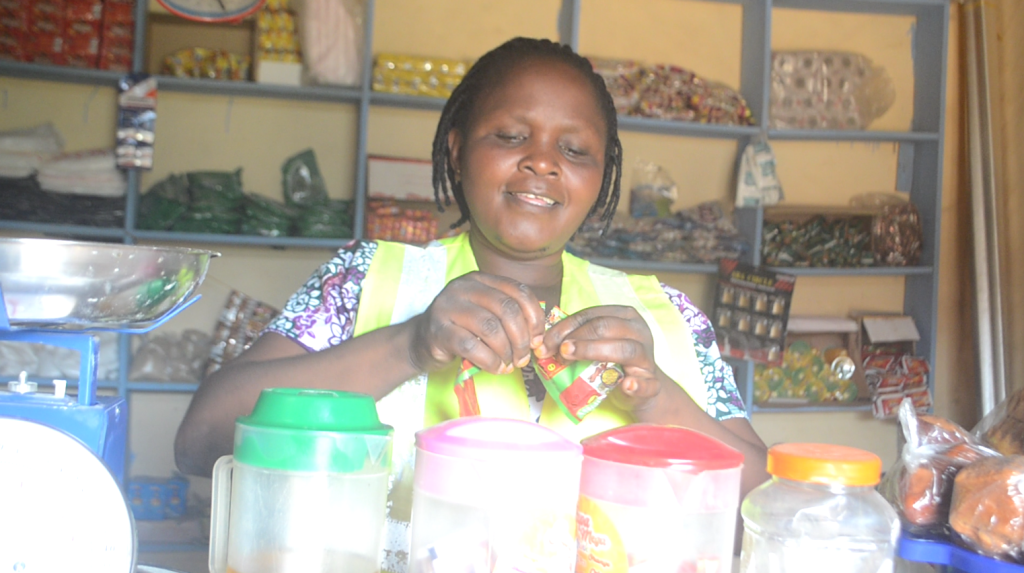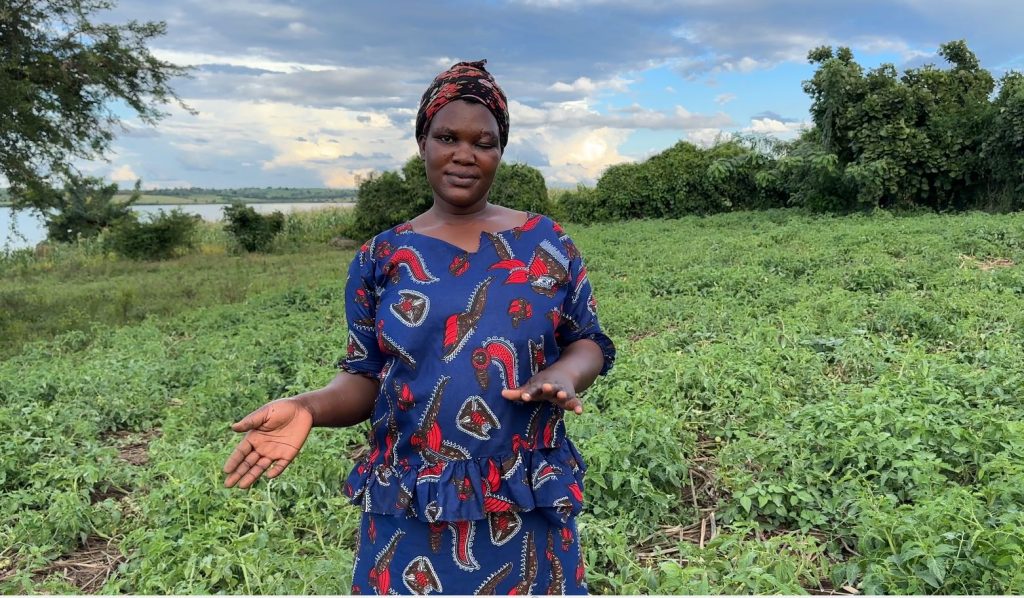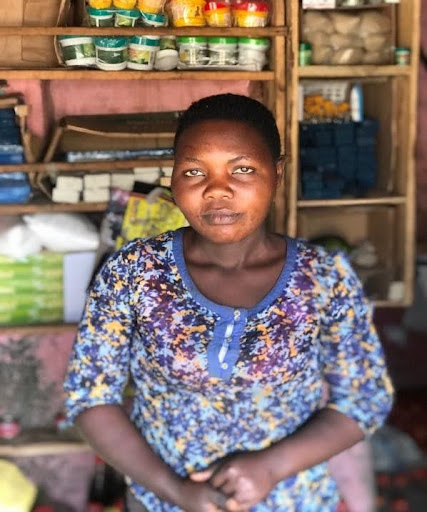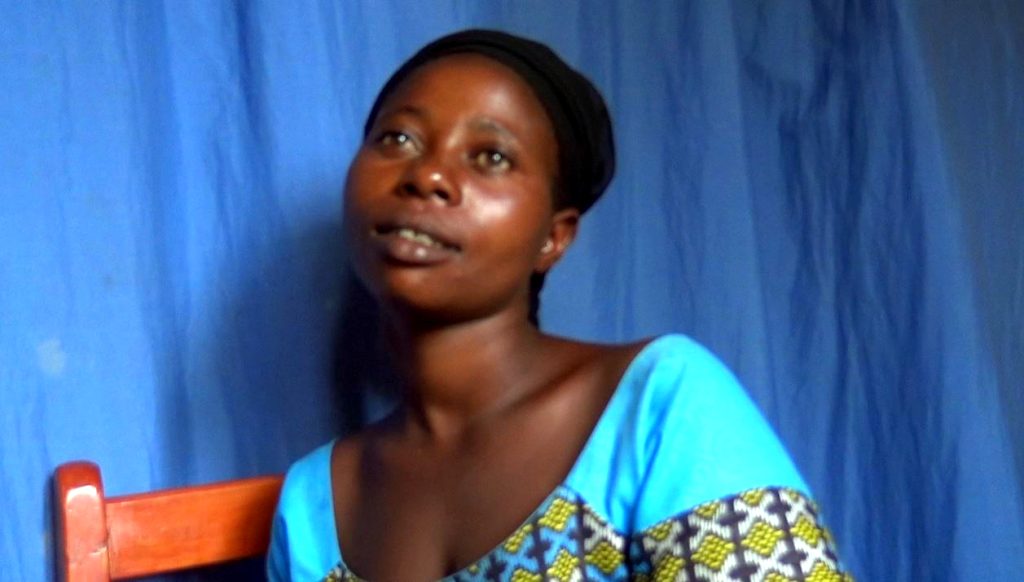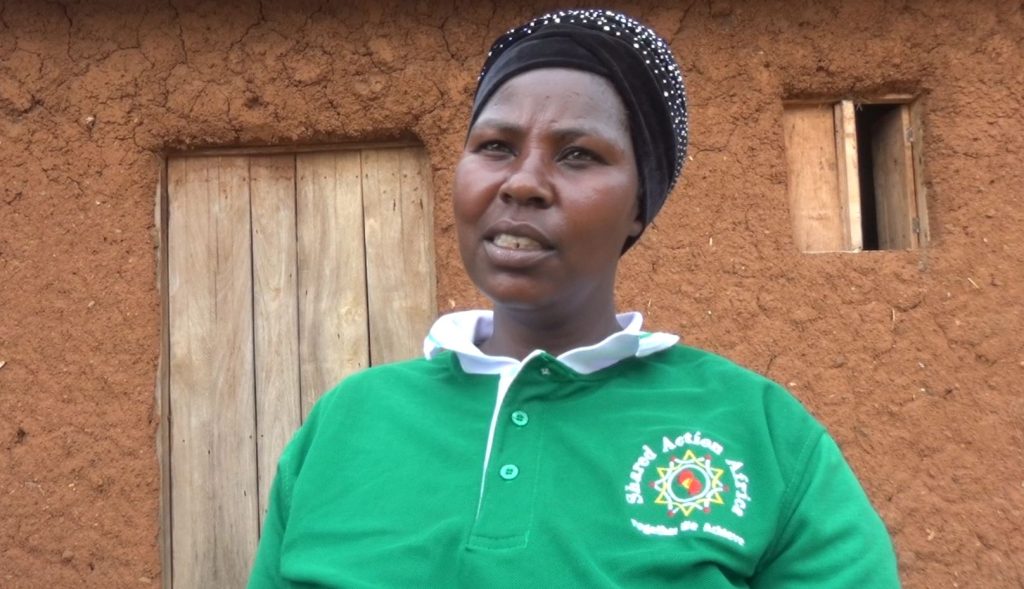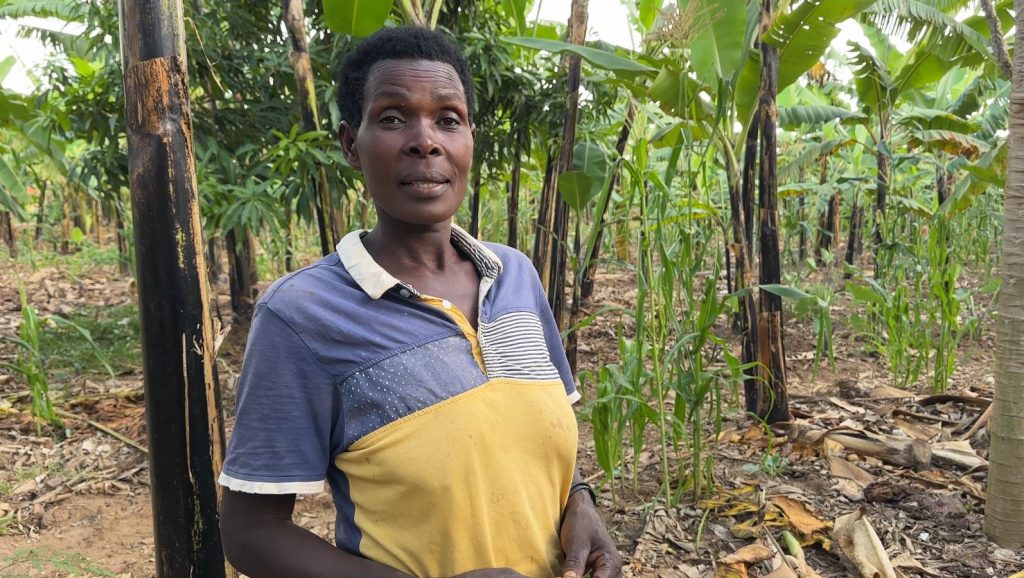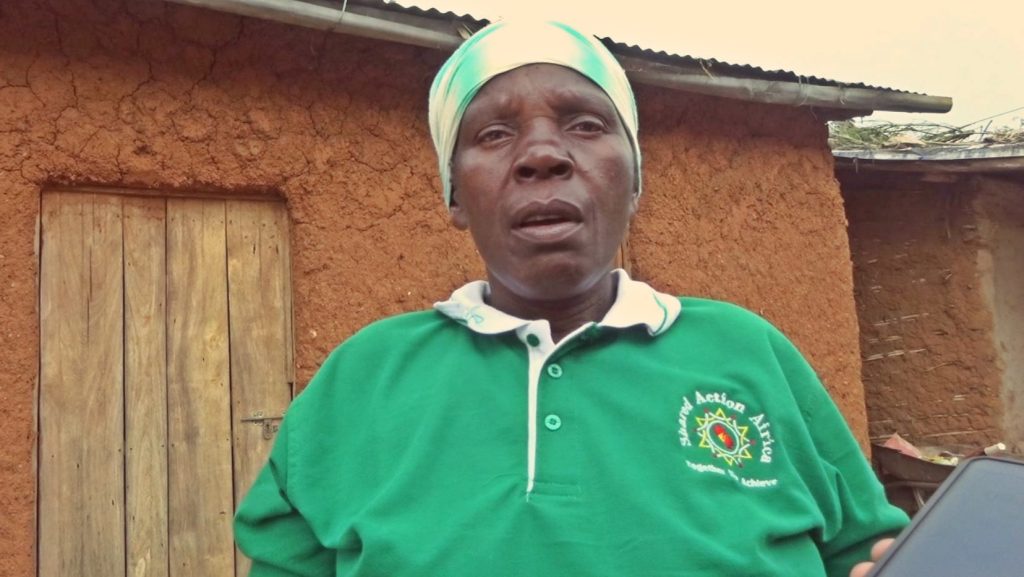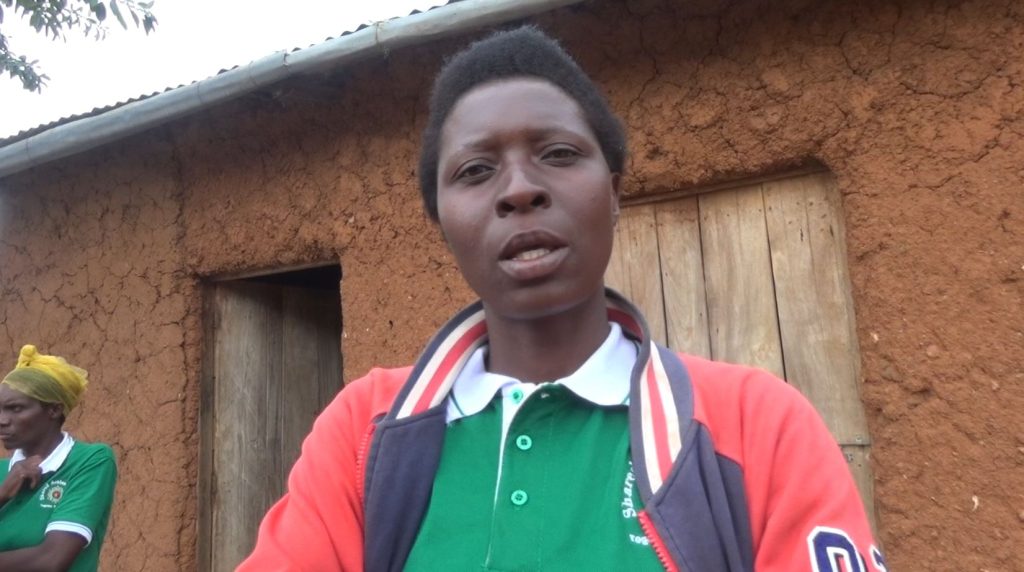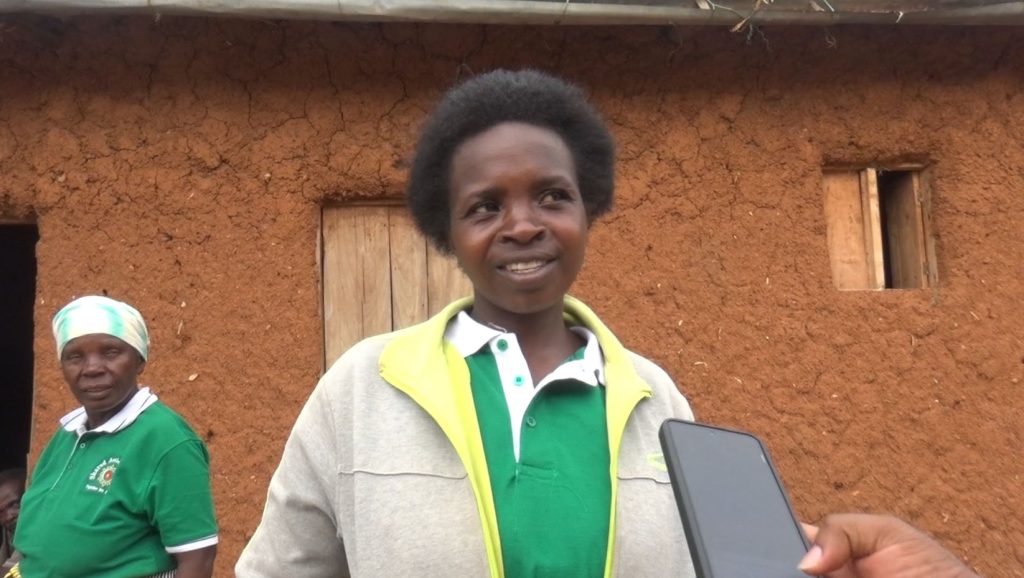Communal Gardening
How Benadate Nyabenda Turned Her Life Around Through Savings and Training.
In the heart of Nakivale Refugee Settlement in Isingiro District, a powerful story of transformation, resilience, and economic empowerment is unfolding. Benadate Nyabenda a refugee, chairperson of the Mucho Savings Group, and a proud mother has redefined her future through the power of savings, training, and community support. Her journey, made possible through programs by Shared Action Africa, is a testament to how dedication and opportunity can change lives.
Nyabenda is more than just a member of the settlement, she is a leader and an entrepreneur. Her journey began when she joined the Mucho Savings Group, established under the initiative of Shared Action Africa, an organization committed to empowering women and vulnerable communities through financial literacy and entrepreneurship training.
“Shared Action Africa changed my life. Through their training under the Savings Groups program, I learned how to save, borrow wisely, and invest in sustainable projects. I was also taught to practice modern agriculture, including maize and bean planting I even have a store for my produce. Additionally, I rear animals such as pigs, goats, and cows, and I specialize in poultry farming, raising chickens for both meat and eggs at a zero-grazing farm. Shared Action Africa provided us with plates for collecting money, books for recording our savings, and savings boxes for keeping our money safe. They found us in a very difficult situation we didn’t even know what savings groups were. They gave us some capital for the group, which we could borrow and return. Today, thanks to their continuous training, we have become experts,” she shares with a smile.
Before joining the group, Nyabenda, like many women in the settlement, struggled with unstable income and limited financial knowledge. But the training she received equipped her with vital skills in savings, budgeting, and investment. With just UGX 1,000 as her starting capital, she laid the foundation for what would become a thriving livelihood.
The Mucho Savings Group quickly became her financial anchor. Through it, she was able to save and access loans, which she invested in agriculture. She started by planting maize, taking advantage of the fertile soils in Isingiro District. As her harvests improved, so did her ventures. She now processes and sells maize flour, and supplies maize seeds to both farmers and traders for food processing. Her agricultural efforts have grown into a key source of income and stability.
But Nyabenda didn’t stop there. With increased confidence and ongoing support from Shared Action Africa, she expanded into animal husbandry. Today, she rears goats, pigs, hens, and cows. Through training in animal care and farm management, she established paddocks to ensure her animals remain healthy and productive. The livestock not only ensures food security for her family but also provides a consistent income stream, enabling her to pay school fees, cover household expenses, and continue saving.
“I never imagined I would one day own a zero-grazing farm, rear animals, and even run a retail shop. Shared Action Africa taught me to believe in the power of savings and hard work. I am now able to save UGX 600,000 every month after all my expenses. That is something I never thought possible as a refugee,” she says.
One of her proudest achievements is her retail shop in Nakivale Settlement. After working on her farm during the day, she manages the shop, which also functions as her business office. From being financially insecure to overseeing multiple income-generating ventures, Nyabenda’s story is nothing short of inspirational.
Her journey represents more than personal success it highlights the power of community-led development and the transformative impact of empowering women. Nyabenda now serves as a role model in the refugee community, encouraging others to take charge of their futures.
“To my fellow refugees, especially the women who are still unsure, I tell them: don’t wait. Join a savings group. Believe in yourself. I started with just UGX 1,000 and look at me now. You don’t need a big capital; you need the courage to start,” she advises.
Nyabenda Thanks Shared Action Africa. “I no longer see myself as just a refugee. I am a businesswoman, a provider, and a leader. They have helped me move beyond the pain of displacement and focus on the possibilities ahead,” she adds.
Nyabenda’s story illustrates the transformative power of financial inclusion and grassroots support systems. Through her leadership in the Mucho Savings Group, she continues to inspire other women in Nakivale to dream bigger, save consistently, and invest wisely.
Shared Action Africa plays a vital role in reshaping the narrative of refugees not as passive victims, but as active contributors to local economies. By investing in community-based initiatives like savings groups and entrepreneurship training, they pave the way for self-reliance and sustainable development.
“Savings are the seeds of dreams. I planted mine with UGX 1,000, and today, I harvest a future I never thought I could have,” says Nyabenda.
Nyabenda shared her future plans: “We want to start a group business that will provide emergency funds for members, so that anyone in need can access money, when necessary,” she said.
Her message is simple but powerful: Start small, believe in yourself, and stay committed because every step, no matter how small, brings you closer to a brighter tomorrow, “she said.

